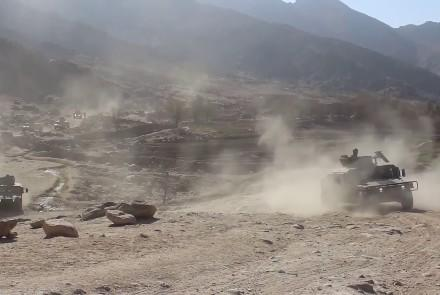‘Lack of Coordination’ of Public Forces Cited in Kapisa Losses

Former Kapisa governor Mehrabuddin Safi said that weak coordination among public uprising forces led to the fall of many key areas to the Taliban in the province, including Nijrab district.
Safi said that the presence of a large number of Taliban fighters also led to the fall of the Kapisa districts.
Security forces left key parts of Nijrab districts two weeks ago, while the Tagab and Ala Sai districts in the province fell to the group earlier in the month.
Over the past two weeks, clashes have been underway in parts of Nijrab to retake the district, but no progress has been made so far. Hundreds of district residents have been displaced due to the clashes.
“Some individuals belonged to Mr. Mirdad. A large number of them. And some others are under Gul Akbar’s command, who has a presence in the Afghania and Pachagan areas. And 100 more people are from the Giyawa area in Njirab led by commander Shitab and commander Nawab,” former Kapisa governor Mehrabuddin Safi said. “These forces are in fact not under a unified command.”
The deputy governor of Kapisa, Aziz-ur-Rahman Tawab, was killed in a clash with the Taliban in Nijrab district on July 16. The fall of key parts of the district happened three days after his death.
Officials and MPs in Kapisa said that at least 1,300 members of the public uprising forces have joined the fight against the Taliban, but sources from the province said the numbers are far less than reported.
Sources said that some Kapisa lawmakers and officials have taken at least 20 million Afs to fund these forces over the last month, but only a small number of these forces are on the frontlines against the Taliban.
“They have been divided. Some to Mr. A, and some to Mr. B … 100 persons belong to one and 300 belong to another,” said Haidar Haidar, a Kapisa resident.
However, Mir Dad Nijrabi, an MP from Kapisa, leads members of the public uprising forces and said these forces have fought against the Taliban and have made sacrifices.
“They are on the ground right now. They are fighting the enemy and none of them have surrendered to the enemy or handed over their equipment and weapons,” Nijrabi said.
